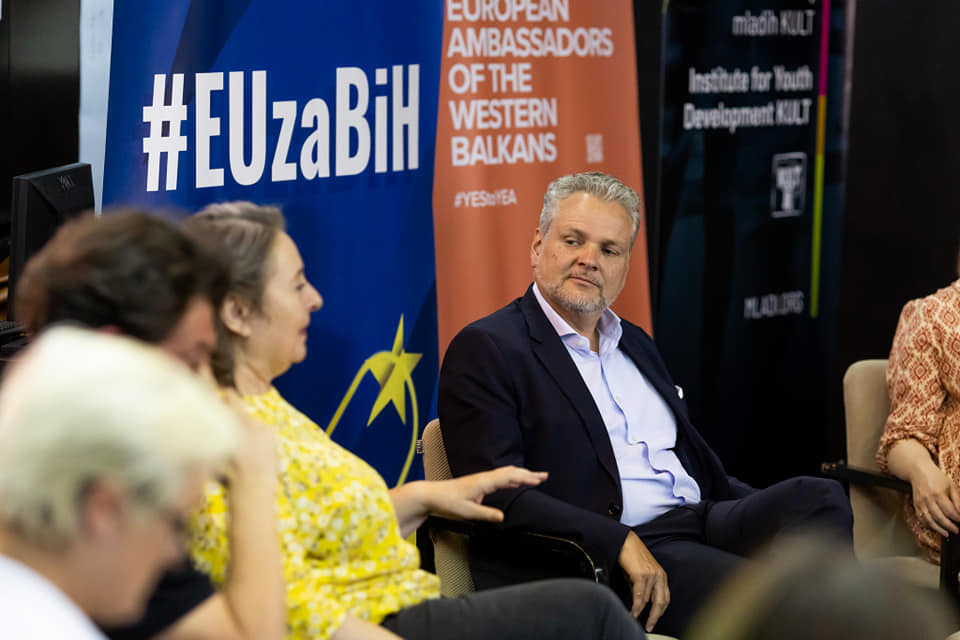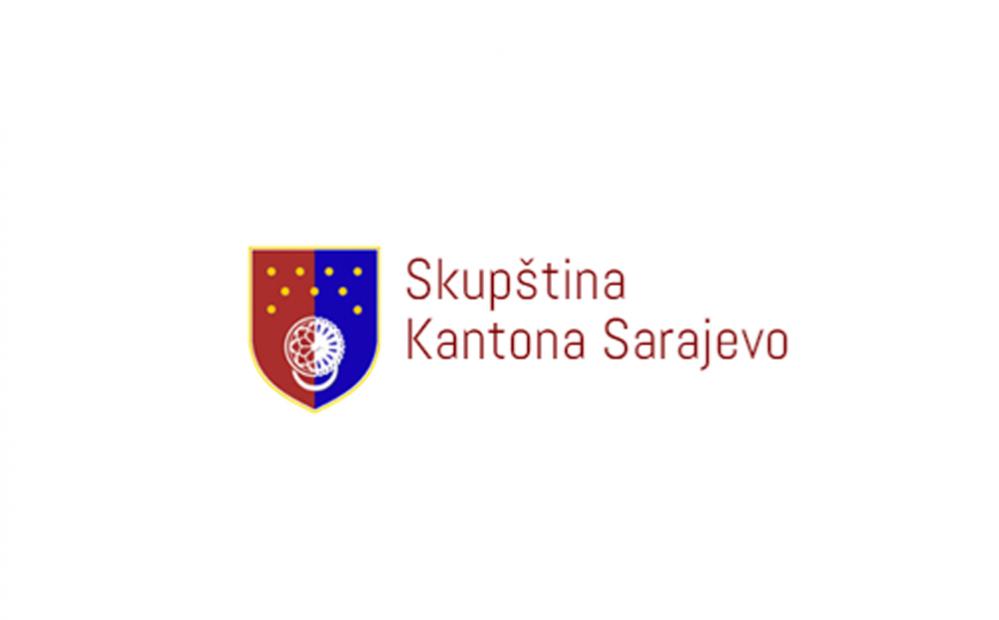While it appears that the long fight to secure basic human rights has ended, and these rights are now seen as a certainty, the situation in Europe and internationally reminds us that there is no absolute guarantee of rights. The question arises once more about how post-conflict societies uphold various rights, how new conflict zones have undone years of progress towards democracy, and how, despite rights guaranteed under the law, our societies remain discriminatory.
The 28th Sarajevo Film Festival showed that film, art, and culture can open up a space for talking about these important and sensitive topics. SFF held its first Human Rights Day program in this format from August 13 to 17, 2022. The program brought together young activists from Bosnia and Herzegovina, future youth leaders, and representatives from the Network of Young European Ambassadors, which is comprised of youth from across the Western Balkans. During the five-day program, participants engaged in discussions on human rights and explored the impact of art, particularly film, in addressing human rights violations.
“I think that this year, the “Human Rights Day” program of the Sarajevo Film Festival gave me a unique opportunity to learn a lot of new things about the topics treated in the films. I recommend the program to everyone who wants to learn something new about human rights, and I can definitely say that it was very useful to me,” said Zaim Mehić, a student and participant in the Learn, Think, and Act! UMiD 17 training for young leaders.

The Human Rights Day program combined art, particularly film, with academic and activist work to address the central question of this year’s event: “Who do human rights belong to today?”
During the five-day program, young participants from across the Western Balkans watched recent, significant films such as “Another Spring,” directed by Serbian director Mladen Kovačević, and “Waltz with Bashir” and “Where is Anne Frank,” directed by Israeli director Ari Folman. Apart from watching films, attendees participated in diverse workshops and masterclasses where they discussed important topics. These included themes like hate speech, the #StopHate campaign implemented by UNHCR Bosnia and Herzegovina, and reflections on the concept of justice in transitional societies. Representatives from Trial International in Bosnia and Herzegovina, Mediacenter Sarajevo, Center for Nonviolent Action, and director Nermin Hamzagić from Bosnia and Herzegovina participated in these sessions.

Zeid Čemer, an activist from Novi Travnik, shared his impressions of the program: “The program was very educational, well organized, with excellent lecturers who kept us riveted from the beginning to the end. The topic was interesting and accompanied by funny and very illustrative anecdotes from the lecturer. I hope to participate in such a program again and meet new people.”
The screening of the film The New Greatness Case, by Russian director Anna Shishova, was one of the main parts of the event which was organized as part of the 14th Human Rights Day program with the support of the Embassy of the Kingdom of the Netherlands. The film screening was followed by a panel discussion with the film’s director and leading actors and a session of “Coffee with… the Ambassador of the Kingdom of the Netherlands.” The participants discussed the devastating effects of human rights violations and explored ways young people can fight this injustice and defend basic human rights.

During these five days, participants of the HRD program and the youth program “Facing the Past” heard the stories and experiences of prominent figures such as Bosnian war reporter Aida Čerkez and president of the NGO Forgotten Children of War Ajna Jusić. They also had the opportunity to talk to Johann Sattler, the Ambassador of the European Union in Bosnia and Herzegovina.
Although organized in this format for the first time, the Human Rights Day program was educational, engaging, and inspiring for the participants. They particularly appreciated the opportunities for sharing opinions, learning, networking, and building connections with other participants and lecturers.

Adrian Nidal Mehmetović, an activist from the Plus Ultra Youth Development and Support Association and one of the program participants, shared his impressions: “The program was very interesting and well organized, full of interesting events. I particularly appreciated the opportunity to meet other program participants from the entire Western Balkans, along with different lecturers and guests, such as the Ambassador of the Kingdom of the Netherlands, director Ari Folman and producer Siniša Juričić.”

The Human Rights Day program was organized as part of the 28th Sarajevo Film Festival, with the support of the Embassy of the Kingdom of the Netherlands in BiH, WeBalkans, and the Institute for Youth Development KULT.
Photo credit: EU Info Center, United Nations in Bosnia and Herzegovina and Sarajevo Film Festival















Leave a comment